Substance Use Disorder Recovery:
Begin Your Journey to Healing
Table of Contents
Written and reviewed by the clinical team at New Life Recovery in Fresno, California, including licensed therapists, medical professionals, and recovery specialists committed to helping individuals build healthier futures.
New Life Recovery: Your Path to Lasting Change
Substance use disorder (SUD) is a chronic medical condition that affects both the brain and one’s behavior, leading individuals to misuse substances despite negative consequences.
At New Life Recovery, we provide personalized, evidence-based treatment to help individuals break free from the cycle of SUD, rediscovering a life of balance, health, and lasting change.

What Is Substance Use Disorder?
Common Substances Involved
- Alcohol: Often seen as a socially acceptable substance, alcohol can be easily overused, leading to dependence and serious health issues.
- Opioids: These include prescription painkillers (e.g., oxycodone, morphine) and illicit substances like heroin. Opioid use disorder is especially dangerous due to the high risk of overdose.
- Benzodiazepines: Medications like Xanax or Valium, commonly prescribed for anxiety and insomnia, can be highly addictive if misused.
- Stimulants: This category includes substances like cocaine, methamphetamine, and prescription drugs, such as Adderall. These substances can lead to a dangerous cycle of dependency and severe physical and psychological effects.
- Others: Substances like marijuana, nicotine, hallucinogens, and inhalants can also contribute to SUD, each presenting unique challenges to recovery.
Symptoms and Signs
- Increased time spent obtaining, using, or recovering from substance use.
- Neglect of responsibilities at work, school, or home.
- Engaging in risky behaviors, such as driving under the influence or using substances in dangerous situations.
- Withdrawal from social activities and relationships.
- Physical tolerance, where larger amounts of a substance are needed to achieve the same effect.
- Withdrawal symptoms when not using the substance, which can range from sweating and nausea to more severe effects like seizures or hallucinations.
- Frequent health issues, such as liver damage or lung problems.
- Intense cravings or urges to use substances.
- Anxiety, depression, or mood swings that may be worsened by substance use.
- Difficulty focusing or thinking clearly.
- A preoccupation with obtaining and using the substance, often at the expense of other important aspects of life.

What Are the Risk Factors and Causes of SUD?
Substance use disorder is influenced by a complex interaction of biological, environmental, and psychological factors. While each individual’s experience with SUD is unique, certain risk factors increase the likelihood of developing the disorder, such as:
Genetics
Brain Chemistry
Peer Pressure
Trauma
Exposure to trauma, such as physical, emotional, or sexual abuse, can lead individuals to self-medicate with substances to cope with the pain and distress. Trauma can deeply affect an individual’s mental health and resilience, making them more susceptible to developing a substance use disorder.
Socioeconomic Challenges
Living in an environment marked by poverty, unemployment, or lack of access to education and healthcare can increase the risk of substance use. These challenges can create feelings of hopelessness or stress, leading individuals to seek relief through substances.
Co-Occurring Disorders
About 7.7 million adults in the U.S. with SUD also struggle with mental health disorders, such as anxiety, depression, PTSD, or bipolar disorder. This co-occurrence is referred to as dual diagnosis.5

The Consequences of Untreated Substance Use Disorder
Chronic Illnesses
Continued substance use can lead to a range of chronic health conditions, such as liver disease (especially with alcohol and opioids), heart disease, lung damage (from smoking or inhalants), and neurological impairments. These health issues are often debilitating and require long-term medical care.
Overdose Risks
The longer an individual struggles with substance use disorder, the greater the risk of overdose—especially with substances like opioids, benzodiazepines, and alcohol. Overdose can lead to long-term disability or death, making timely intervention critical to prevent these life-threatening situations.
Mental Health Decline
Substance use disorder is often linked to declining mental health. Individuals with untreated SUD may experience worsening depression, anxiety, paranoia, or psychosis.
Strained Relationships
SUD can take a heavy toll on personal relationships. Loved ones often experience emotional distress, financial strain, and feelings of betrayal due to the behaviors associated with SUD, such as dishonesty, neglect, or abusive tendencies.6
Over time, these relationships may deteriorate, leading to isolation and loneliness for the person struggling with SUD.
Financial Instability
Legal Challenges
People with untreated SUD may face legal issues, including arrests for driving under the influence, possession, or engaging in illegal activities to fund their substance use disorder. These legal issues can further exacerbate financial instability, add to emotional distress, and complicate recovery efforts.
Increased Healthcare Costs
Loss of Productivity
Strain on Social Services
At New Life Recovery, we’re here to contribute to healthier communities—one individual at a time.

Comprehensive Treatment Approaches for SUD
Effective treatment for substance use disorder requires a holistic and personalized approach that addresses the physical, psychological, and emotional aspects of SUD.
A combination of detoxification, therapeutic modalities, medication-assisted treatment, and holistic therapies helps individuals heal and build a foundation for lasting recovery.7
While everyone’s healing journey will be different, the general process of substance use disorder treatment follows these steps:
Detoxification
Detoxification is often the first step in the recovery process, ensuring that individuals safely remove harmful substances from their bodies. This process occurs under medical supervision to manage withdrawal symptoms and prevent potential complications.
Detoxification can be particularly critical for substances like alcohol, opioids, and benzodiazepines, where withdrawal can be dangerous without proper support.
Monitoring and Support
During detox, healthcare professionals monitor vital signs, provide necessary medications to ease withdrawal, and ensure overall safety. The goal is to stabilize the individual physically, so they are prepared to engage in the next stages of recovery with a clear mind and body.
Individual Counseling
Group Counseling
Group therapy provides a supportive environment where individuals can connect with others going through similar experiences. It offers opportunities for shared learning, emotional support, and accountability.
Facilitators guide discussions on topics such as future prevention, emotional regulation, and coping skills.
A Closer Look at Group Therapy
Family Counseling
It creates a foundation for healthy relationships and provides families with tools to support their loved one’s journey.
A Closer Look at Family Therapy
Medication-Assisted Treatment (MAT)
A Closer Look at MAT
Supporting Recovery
Holistic Therapies
Holistic therapies are designed to treat the whole person—mind, body, and spirit. These therapies encourage self-awareness, relaxation, and overall well-being.
Art Therapy
Mindfulness and Nutrition
Cold Plunge
Sauna Therapy
Yoga

The Recovery Journey: Why Choose Us
Personalized Treatment Plans
By integrating detox, therapy, medication-assisted treatment, and holistic therapies, your personalized approach builds a foundation for lasting recovery.
Inpatient and Outpatient Options
Dual Diagnosis Treatment
Our dual diagnosis treatment addresses both substance use and mental health disorders simultaneously, using evidence-based therapies, medication management, and holistic interventions to ensure comprehensive care.
Continuum of Care

Ready to Start Your New Life?
Our Compassionate Team and Evidence-Based Therapies
We provide all levels of support on a single campus, making the healing process as simple and easy as possible for your needs. You can transition from detox all the way through to aftercare and case management services at our location.
Reach Out to Our Team Today
You don’t have to wait to begin healing – reach out to New Life Recovery today and take the first step toward a brighter, healthier future. We’re here to help you love your life again.
Resources
- https://www.samhsa.gov/data/report/2023-nsduh-detailed-tables
- https://www.nimh.nih.gov/health/topics/substance-use-and-mental-health
- https://www.medicalnewstoday.com/articles/substance-use-disorder#signs-of-drug-use
- https://health.clevelandclinic.org/is-addiction-genetic
- https://archives.nida.nih.gov/research-topics/trends-statistics/infographics/comorbidity-substance-use-other-mental-disorders
- https://pmc.ncbi.nlm.nih.gov/articles/PMC3725219/
- https://my.clevelandclinic.org/health/diseases/16652-drug-addiction-substance-use-disorder-sud





